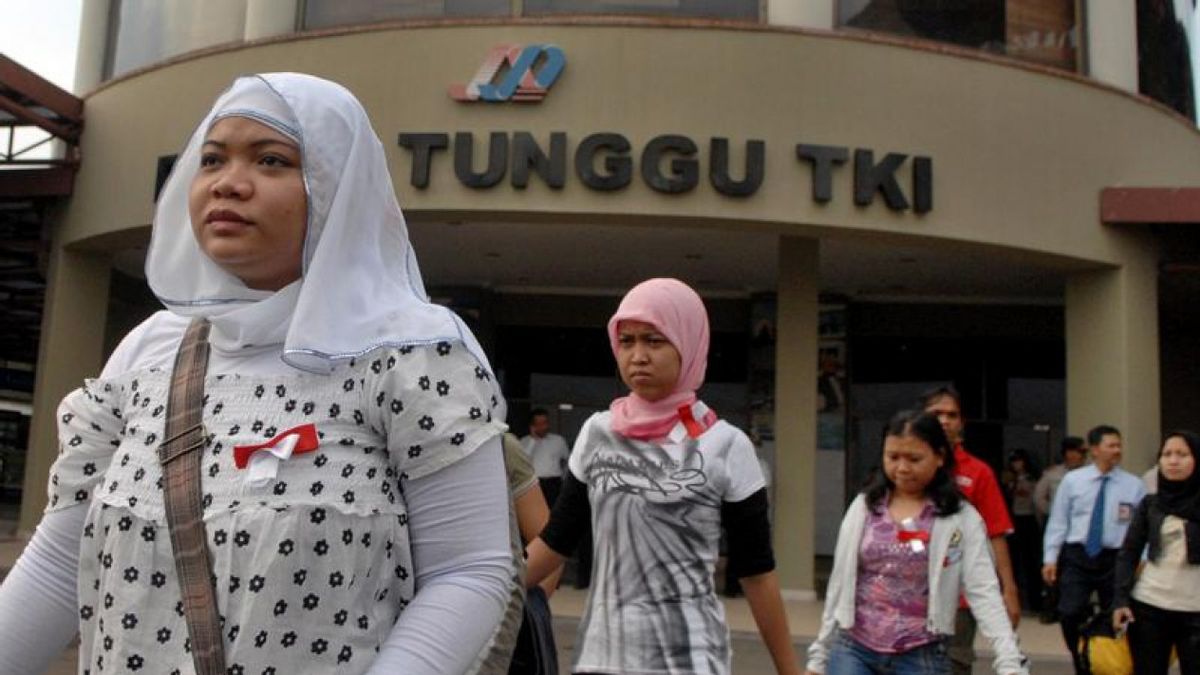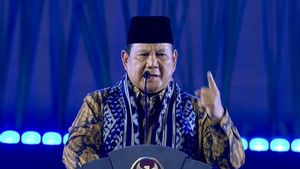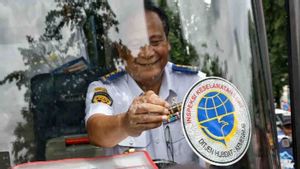JAKARTA - I still clearly remember the torture case of an Indonesian Migrant Worker (TKI) in Kuala Lumpur Malaysia which was allegedly carried out by her employer in December 2020. The TKI had the initials MH, 26 years old who worked as a housemaid.
His body was covered with torture wounds. There were knife cuts on his chin and palms. Also, burns on the face, trunk, left leg, and chest. Regional Director of BWI-Malaysian Liaison Council, Apolinar Tolentino in a press statement said, MH was tortured almost every day by his employer, even being left outside his home for eight days without being fed.
The incident happened again in April 2021, this time for a 46-year-old woman from West Java. This female migrant worker who works as a housemaid is tortured, even if her salary is not paid for five years.
When rescued, his physical condition was very thin, perhaps because he did not get proper food from his employer.

"On the evening of April 15, 2021, as a result of coordination from the Indonesian Embassy, the PDRM (Police Di Raja Malaysia) went to the location to rescue the victim and was immediately taken for a medical examination for the alleged abuse by the perpetrator," said Yoshi Iskandar, coordinator of Social and Cultural Information. Indonesian Embassy in Malaysia, Yoshi Iskandar, in a press statement.
Not only the two TKI, there are many other TKI who experience the same thing while working in Malaysia. Throughout 2021 alone, based on Katadata data, there have been 1,702 complaints regarding the placement of Indonesian Migrant Workers (PMI) that have entered the crisis center of the National Agency for the Placement and Protection of Indonesian Migrant Workers (BN2PTKI). A total of 403 or about 23.7 percent came from PMI in Malaysia.
His reports are related to issues of unpaid wages, falsification of documents, trafficking in persons, wanting to be repatriated, sexual harassment, to acts of violence from employers.
The previous years were the same. Data from the Indonesian Migrant Workers Union in 2014-2015 stated that 321 cases of Indonesian Migrant Workers were problematic. Most Indonesian migrant workers work in Malaysia. The next period, 2016-2017 was no different, there were 1,501 cases of Indonesian migrant workers, the majority of whom were working in Malaysia.
Urgent NeedProfessor of the Department of Sociology, FISIP Universitas Airlangga Bagong Suyanto, assessed that working as a TKI, although dangerous, was still an option for the villagers because this job was indeed very promising from an economic point of view.
This is because jobs are becoming scarcer and the wages obtained from the various sectors they are engaged in are no longer promising, so the opportunity to try their luck looking for work abroad becomes a tempting offer.
"A study conducted by the author in Tulungagung, Malang, Sampang, and Ponorogo regencies, East Java Province who interviewed 400 illegal migrant workers/TKW found that not a few villagers were desperate to try their luck working abroad because of the pressure on their living needs and family needs which tended to increase," he said. Bagong in his article entitled 'Exploitation and Protection for Indonesian Migrant Workers' in 2018.
As a result of economic pressure, the TKI even dared to leave even though it was illegal, not having an official permit to work abroad. Usually, because they don't want to be bothered and don't want or are able to spend money to take care of all the complete documents.
“In fact, the risk is very big, especially in Malaysia, which always sweeps the presence of illegal migrants. Oftentimes, migrant workers caught in raids are jailed and then deported to their home countries. Although many are also free after paying compensation money," wrote Bagong.

This is true in Sabah, just like during the Covid-19 pandemic. As stated by the Fact Finding Team of the Coalition of Sovereign Migrant Workers (KBMB). The migrant workers are always playing around with the Malaysian Immigration Service officers, even having to hide in the oil palm forest at night so they don't get caught in raids. If caught, they are held in immigration detention centers.
In detention, women migrant workers, children, and the elderly live in huddled together. They not only suffer physically, but also suffer from mental disorders.
“Health services are not the only poor condition in detention centers in Sabah. The team also found that prisoners were tortured to the point of death. In addition, there are also children who continue to be detained even though their parents have died in detention," KBMB wrote in its press release, 23 June 2022.
The Ministry of Foreign Affairs confirmed that throughout 2021 there were 18 Indonesian citizens who died in Depok, Sabah Immigrant Detainees (DTI), Malaysia, 17 men and 1 woman.
"There is no clean water, the food is bad, how can people not die. They can sleep a maximum of 2 hours to 3 hours a day," said the KBMB Fact Finding Team Abu Mufakhir, quoted from Kompas TV broadcast, Wednesday (29/6).
Malaysian ArroganceIt is undeniable, Malaysia is indeed the most popular destination for Indonesian Migrant Workers (TKI). BN2PTKI noted that there were at least around 1.62 million PMIs in Malaysia in 2021.
These cases prompted the Government to take quick steps by renewing the Memorandum of Understanding (MoU) regarding the placement and protection of domestic workers with Malaysia which has expired since 2016.
The signing of the MoU was witnessed by President Joko Widodo and Malaysian Prime Minister Ismail Sabri at the Merdeka Palace, Jakarta on April 1, 2022.
The MoU regulates the use of the One Channel Placement System (SPSK) or the one channel system as a recruitment and monitoring system. The use of this system will provide maximum protection for PMIs
“Indonesian migrant workers (TKI) have contributed a lot to economic development in Malaysia. It is only natural that they get maximum rights and protection from our two countries," said Jokowi as quoted from the official website of the Indonesian Ministry of Foreign Affairs.

However, only two months after the signing, Malaysia has acted. The Indonesian representative found some evidence that Malaysia was still implementing the Online Maid System (SMO).
"This is not in accordance with the MoU," said the Director of Protection for Indonesian Citizens and Indonesian Legal Entities at the Ministry of Foreign Affairs, Judha Nugraha, as reported by Voi on July 14, 2022.
SMO is a Malaysian system that is used to regulate the placement of migrant workers directly without going through an agency. This system will create shortcuts for the departure of TKI according to procedures, including the training process, preparation of workers, and documents. Thus, TKI can easily convert visas, from visit visas to work visas.
In the end, the Indonesian government does not have detailed data regarding Indonesian labor migrants in Malaysia. It is difficult to provide protection, such as passport detention by the employer, salary deductions, and others.
“Specifically, this SMO makes the position of our TKI vulnerable to exploitation because the recruitment mechanism passes Law Number 18 of 2017 concerning the protection of migrant workers. In the end, our TKI who went to Malaysia did not go through the legal stages,” said Judha.
When a TKI is declared illegal, his position will be very weak before the Malaysian legal system if he is subjected to bad treatment.
That is why, since July 13, 2022, the Government of Indonesia has temporarily suspended the sending of TKI to Malaysia. This decision has also been officially conveyed by the Indonesian Embassy in Kuala Lumpur to the Malaysian Ministry of Resources.
"We expect positive results from these discussions," said Judha.
However, cooperation must be mutually beneficial. The government, said Head of the Migrant Care Center for Migration Studies Anis Hidayah, must conduct a careful evaluation of the regulatory framework for the cooperation of sending TKI to Malaysia. Thus, Malaysia's arrogance will no longer occur and migrant workers can be better protected.
The English, Chinese, Japanese, Arabic, and French versions are automatically generated by the AI. So there may still be inaccuracies in translating, please always see Indonesian as our main language. (system supported by DigitalSiber.id)












